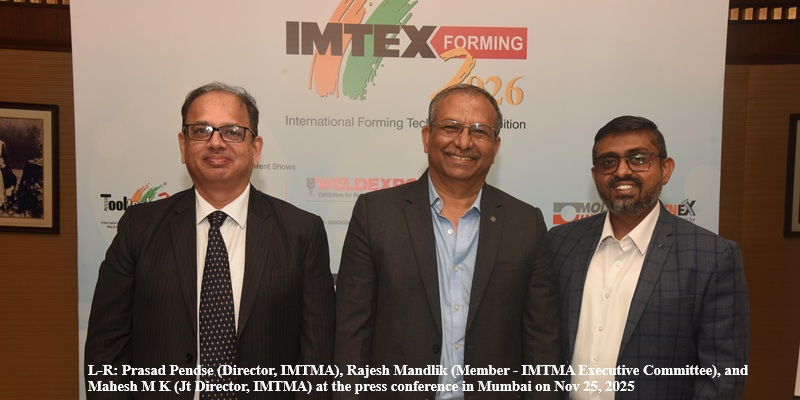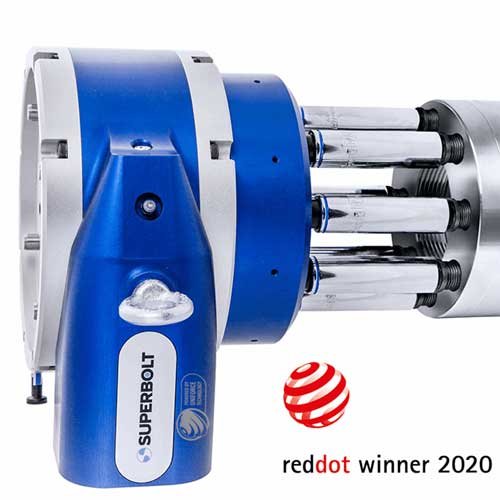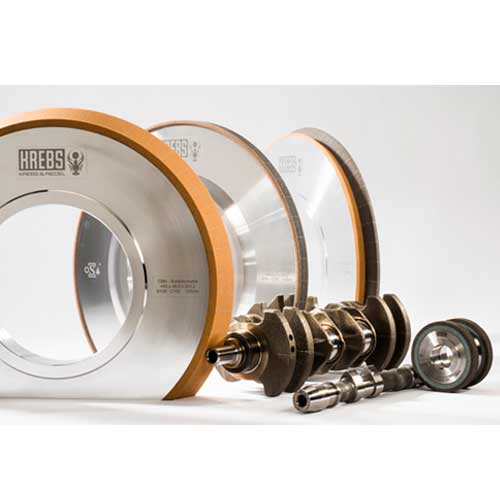Schedule a Call Back
Indian machine tool industry expected to grow 10% in FY26: Jibak Dasgupta
 Articles
Articles- Sep 03,25

The Indian machine tool industry recorded its highest-ever production (Rs 145.66 billion) and consumption (Rs 317.81 billion) in FY25, with India now ranked 9th in global production and 4th in consumption. While rising US tariffs and low-cost imports present challenges, the industry is expanding into sectors such as defence, aerospace, railways, electronics, and renewable energy. In this interaction with Rakesh Rao, Jibak Dasgupta, Director General & CEO, Indian Machine Tool Manufacturers' Association (IMTMA), highlights how the industry is on track for around 10 per cent growth in FY26, alongside efforts to reduce import dependency and expand exports.
How was FY25 for the Indian machine tools industry (in terms of production, exports and imports)? Where does India stand in the global machine tools industry?
The Indian machine tool industry continues its upward trend, with production in FY 2024-25 estimated to have increased by 7 per cent to reach Rs 145.66 billion (around $ 1.7 billion), while consumption is projected to have risen by 17 per cent to reach Rs 317.81 billion (around $ 3.7 billion) during the period. This is the highest-ever domestic production and consumption. In FY 2024-25, machine tool imports amounted to Rs 186.86 billion, and machine tool exports amounted to Rs 14.72 billion.
As per the World Machine Tool Survey 2024 by Gardner Intelligence, India is ranked 9th globally in production and 4th in consumption.
How will the rising US tariff barrier affect the Indian machine tools industry?
The Indian machine tool industry majorly supplies to the auto segment, with a significant amount of auto components being exported to the US. A tariff on the auto sector would have a cascading effect on the machine tool industry. However, the Indian machine tool industry is expanding its footprint into other sectors like aerospace, defence, railways, electronics, and a few others. We believe that in the future, these will grow and nullify the impact of tariffs, and even during a slowdown, the Indian machine tool industry can sustain itself.
Besides the tariff war, what are the other key challenges before the industry at present? What are your suggestions to boost growth?
Large-scale low-cost imports of machines, including high-technology and high-precision ones from Asian countries, are flooding the Indian market. Faster delivery schedules, large volume orders demand higher capacity requirements, which is a drawback for the domestic industry. The capability of global suppliers for faster delivery and volume supply is impacting demand for domestic suppliers.
The Indian machine tool industry also needs to grow strong to compete with global players, and the challenge lies in building better indigenous high-precision technologies. There is a need to build sector-specific, technologically advanced machines, provide customisation, and offer application-specific solutions.
Under the Scheme for Enhancement of Competitiveness in the Indian Capital Goods Sector, Phase II, products and technologies are being developed. The focus is on the indigenisation of machine tools and subsystems.
Which end-user industries will propel demand in the near future?
Electronics, as India is already one of the largest players in electronics manufacturing systems (both mobile phones and consumer electronics). Other sectors, such as defence, aerospace, semiconductors, renewable energy, and consumer goods, besides the traditional auto sector and general engineering, will propel demand.
How is the Indian machine tools industry tapping opportunities in growing sectors such as defence, railways and electronics?
Indian industries have taken up contract manufacturing for the global, civil and defence aerospace sector and have proved their mettle. Defence Procurement Policy, import-substitution targets, and the “Indigenisation List” have created opportunities for domestic suppliers of precision manufacturing equipment.
Railways and metro rail networks demand various equipment, including presses, press brakes, and laser cutting machines. Railways is a core client for the machine tool industry as it sources the machine tools and solutions needed for coach manufacturing and building engine parts. Cell phone manufacturing, consumer goods manufacturing, and wearables demand CNC machines, fixtures, and tools, which offer huge opportunities for Indian industries.
All these developments are creating opportunities for machine tool demand for Indian players.
The adoption of automation and digitalisation, along with automated machinery, is growing across industries. How is the Indian machine tools industry embracing this reality?
The Indian machine tool industry is catching up with the adoption of automation and digitalisation. All the advanced machines manufactured by Indian machine tool players are being designed and built with embedded sensors, IoT connectivity, and real-time monitoring to predict failures and schedule servicing before breakdowns, reducing downtime. Collaborative robots (cobots) and robotic arms are being integrated for loading and unloading parts, tool changes, and repetitive operations, especially in high-volume production.
There still remains a gap that the industry needs to address, as only OEMs are integrating digitalisation. SMEs still face challenges due to cost and a lack of resources, but they are undergoing a transition phase of adopting new technologies.
Which technological trends will define the future of the machine tools industry?
Emphasis is on green manufacturing with a reduced carbon footprint and carbon tax. Industries are moving towards adopting sustainable solutions which would have a limited impact on the environment.
What are your expectations in FY26?
In FY26, we expect machine tool growth, in both production and consumption, to be around 10 per cent. A key focus will be on finding new markets for exports, particularly in the Middle East and African regions, while also expanding our presence in traditional markets. Under the Look East policy, India is also aiming to strengthen its base in South and South-East Asian countries. On the domestic front, the priority will be to increase market share and gradually reduce dependence on imports. In addition, the industry will move towards providing end-to-end solutions to user sectors, rather than just supplying machines.
4 Blurbs
The Indian machine tool industry majorly supplies to the auto segment, with a significant amount of auto components being exported to the US. A tariff on the auto sector would have a cascading effect on the machine tool industry.
We believe that in the future, these will grow and nullify the impact of tariffs, and even during a slowdown, the Indian machine tool industry can sustain itself.
The Indian machine tool industry also needs to grow strong to compete with global players, and the challenge lies in building better indigenous high-precision technologies.
All the advanced machines manufactured by Indian machine tool players are being designed and built with embedded sensors, IoT connectivity, and real-time monitoring to predict failures and schedule servicing before breakdowns, reducing downtime.
Related Stories

Indian machine tools sector is poised for strong expansion: Rajesh Mandlik
During the recent press meet in Mumbai for IMTEX Forming 2026 (which will be held from January 21–25 in Bengaluru), Rajesh Mandlik, CEO of Setco Spindles India, discusses with Rakesh Rao growth op..
Read more
IMTEX Forming 2026 to bring together global metal forming leaders in Bengaluru
At the Asia's largest metal forming exhibition, 600+ global exhibitors from 20 countries will showcase latest technologies in metal forming, digital manufacturing, welding, and moulding among others..
Read more
Musashi India Expands Bengaluru Plant to Boost Transmission Output
Musashi India has completed Phase 2 of its Bengaluru plant expansion to scale production.
Read moreRelated Products

Bmt Tool Disc and Tool Holders
Prominent Machine Tools offers a wide range of BMT tool disc and tool holders.

Superbolt Tool
Nord-Lock India Pvt Ltd offers a wide range of Superbolt
tool.

Cbn and Diamond Tools
Krebs & Riedel Abrasives India Pvt Ltd offers a wide
range of CBN and diamond tools.















